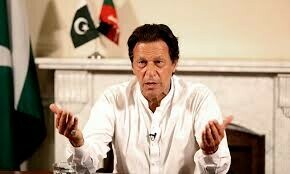KARACHI: Describing Benazir Bhutto as one of the most dynamic and popular leaders on the centre stage of Pakistan’s politics, speakers at a national conference organised on Thursday at Karachi University (KU) said that the social and political reforms the late prime minister introduced were a model not only for Pakistan but also the whole world.
The conference titled ‘Socio-Political Reforms of Shaheed Mohtarma Benazir Bhutto’ was organised by the KU Shaheed Mohtarma Benazir Bhutto Chair (SMBBC) at the arts auditorium.
Paying tributes to the late leader, barrister Murtaza Wahab, Adviser to the Chief Minister of Sindh on Information, Law and Anti-corruption, who also chaired the concluding session, said that Benazir Bhutto demonstrated matchless courage in confronting military rule and in the process facilitated a democratic transition.
“She portrayed the image of a remarkable leader, well informed [about] global politics and ground realities, who aspired to transform Pakistan into an economically developed, democratic, socially tolerant and modern state,” he said.
The late prime minister, he said, was a beacon of hope for millions of Pakistanis as she was able to bring in structural and socio-political changes aimed at empowering the downtrodden and marginalised segments of society, especially women and minority communities.
“She encouraged young women to participate in politics and took important measures for the economic empowerment of women. These steps included establishment of country’s first women’s bank, start of lady health workers’ programme and a police station exclusively by and for women,” Mr Wahab said, adding that it was her government which ensured media freedom.
He also spoke about how she tried to secure minorities’ rights by setting up a separate ministry for minorities affairs in her second term in 1993.
“She lived for people, with the people and proudly sacrificed her life fighting for the people’s rights,” he said.
Presenting their research papers, Prof Summer Sultana and Dr Mohammad Ali said that Ms Bhutto was internationally acknowledged as a leader who fought for democracy and fundamental human rights.
She was indeed a great woman, a great parliamentary leader and a courageous democrat, they said.
Earlier, during the conference’s inaugural ceremony, Shehla Raza, Provincial Minister for Women Development, said that Benazir Bhutto’s policies and reforms had a long-lasting impact on society.
Referring to present-day challenges, she said that society needed to identify “real religious scholars” and the government’s job was to differentiate between ulema and extremists.
The government, she said, must not play in extremists’ hands and protect citizens. “This is high time to enforce principles and ideology of Benazir Bhutto,” she remarked.
Prof Muhammad Ahmed Qadri, the director of SMBBC, lamented that today the word ‘politics’ had negative connotations. “This happened because people have repeatedly seen that political leaders often served their interests once they come in power. This, however, was not the case with Benazir Bhutto who gave her life for the people,” he said.
Talking about the objectives of Benazir Bhutto chair, KU Vice Chancellor Prof Muhammad Ajmal Khan said that its purpose was to communicate and explore her vision through academic research.
“She was a visionary and a role model for all women. She possessed outstanding political acumen and courage. We need to research on her services for the country,” he emphasised.
Published in Dawn, November 9th, 2018













































